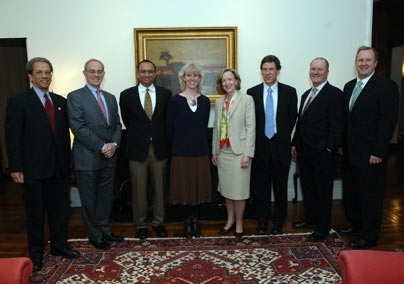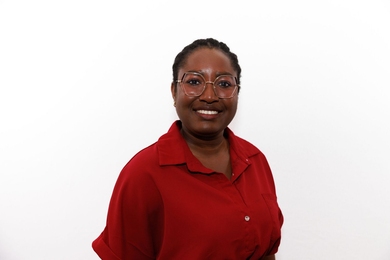As a young professor, Carl E. Wieman SB '73 figured it would be easy to get his students as excited about physics as he was. He would simply explain the subject, and students would see it with the same sterling clarity he did.
It didn't work.
"For many years, it was a frustrating puzzle to me" that students left the classroom as baffled--sometimes more baffled--than when they came in, said Wieman, a 2001 recipient of the Nobel Prize in Physics for his work on Bose-Einstein condensation.
As part of MacVicar Day 2008, an annual MIT celebration of undergraduate education, Wieman spoke March 7 about "Science Education in the 21st Century: Using the Tools of Science to Teach Science."
Spending less time reciting textbook facts, and more time actively engaging students with the same kind of puzzles and challenges that intrigue experts, goes a long way toward boosting student motivation and achievement, Wieman said. "Lectures listened to passively are completely worthless," he said. "They'll probably get the material better reading the text on their own. Use classroom time for making sure students are prepared to learn, for processing concepts and deeper understanding."
This year's MacVicar Faculty Fellows, announced at a reception hosted by President Susan Hockfield following Wieman's talk, are Tania Baker, professor of biology; W. Craig Carter, professor of materials science and engineering; Sanjay E. Sarma, associate professor of mechanical engineering; Stephen J. Tapscott, professor of literature; and Barton Zwiebach, professor of physics.
Wieman, who founded and directs the Carl Wieman Science Education Initiative at the University of British Columbia, said that "enormous global-scale issues," such as global warming, require a scientifically literate population. Yet science educators are failing to turn out students--aside from the 1 percent who go on to scientific careers--capable of "thinking about and using science like a scientist," he said.
Wieman's undergraduate experience at MIT was unorthodox: he pursued his own research in Lester Wolf Professor Daniel Kleppner's group and "spent countless hours" discussing physics with graduate students and postdocs, including David E. Pritchard, now Cecil and Ida Green Professor of Physics, but managed to take few formal classes.
It was when Wieman first starting teaching physics at the University of Michigan and later at the University of Colorado that he realized that something was going wrong for undergraduate science students. At the same time, students who entered physics graduate programs were miraculously transformed--from largely the same launching point as their non-science classmates--into expert physicists.
How did this happen? Wieman started looking to the increasing body of classroom-based studies, brain function investigation and cognitive psychology research for an answer.
He found that a dismal retention rate--only 10 percent of students correctly recalled a nonobvious fact 15 minutes after they heard it in a lecture--was "exactly what you would expect," he said. Because our short-term memory is very limited, it's not surprising to brain researchers that most students have only "a vague sense" of what a lecture was about immediately after hearing it.
Within the context of brain research, the inability of students to change their mode of thinking from novice to expert also was not surprising, he said. Becoming an expert changes the brain physically to include an organizational structure that allows retrieval and deployment of knowledge; simply delivering expert knowledge to students does not make them experts.
Wieman found that graduate students, by working with an expert tutor, learn by developing their own understaniding. An expert individual tutor can have a large impact on even large lecture classes by focusing on motivation, he said. "The goal is to convince students that physics is important and fascinating; probe where they are starting from, get them to actively process ideas and then probe and guide their thinking," he said. Posing questions instead of imparting information; getting students to explain material to the professor and to each other; allowing students to make mistakes and correct them on their own all result in dramatic improvements in retention and conceptual understanding, he said.
Technology such as personal response clickers can enhance engagement and provide instant feedback on what students do and don't understand.
"You can't assume they're interested in (the subject matter), but if you can make them interested in it, they'll learn it a lot better," he said. "Think about every question you pose: Is it obvious why someone would care about that answer besides a physics professor posing it in on a test?"
A version of this article appeared in MIT Tech Talk on March 12, 2008 (download PDF).






